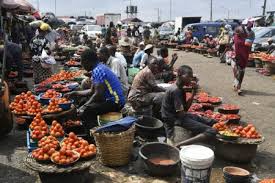The United Nations has projected that approximately 82 million Nigerians, representing about 64% of the country’s population, may face hunger by 2030. This alarming prediction underscores the urgent need for the Nigerian government to address critical issues such as climate change, pest infestations, and other factors threatening agricultural productivity.
This prediction coincides with a significant surge in food prices in Nigeria. The National Bureau of Statistics reported that the country’s food inflation rate reached an unprecedented high of 40.66% in May 2024, slightly above the previous month’s increase of 40.53%. This represents the largest year-on-year increase in food prices since records began in 1996.
Historically, Nigeria’s food inflation has averaged 13.42%, with the lowest recorded rate of -17.50% in January 2000. The current situation is dire. In 2023, the Food and Agriculture Organisation (FAO) warned that no fewer than 2.6 million Nigerians in Borno, Sokoto, Zamfara states, and the Federal Capital Territory (FCT) might face a food crisis between June and August 2024.
Speaking recently at the launch of CropWatch in Abuja, the Punch reported that the Resident Humanitarian Coordinator of the Food and Agriculture Organisation, represented by one of the UN officials, Taofiq Braimoh, said, “The government of Nigeria, in collaboration with others, conducts an annual food security survey. This year’s results are alarming: approximately 22 million Nigerians will face food insecurity in 2023, and around 80-82 million are at risk of severe food insecurity by 2030.
“Nigeria, like many countries, grapples with food insecurity, climate change, unreliable water patterns, pest infestations, and other threats to agricultural productivity. As an agrarian society, our farms’ success directly impacts food availability for our population. Leveraging technology is crucial to strengthening our agriculture sector and ensuring food security.”
He highlighted that satellite-based crop monitoring could provide real-time data on crop conditions, aiding farmers and policymakers in making informed decisions and optimizing agricultural practices. This technological advancement is crucial for achieving sustainable development goals in food and agriculture.
He noted that this technological advancement is crucial for achieving sustainable development goals in food and agriculture.


